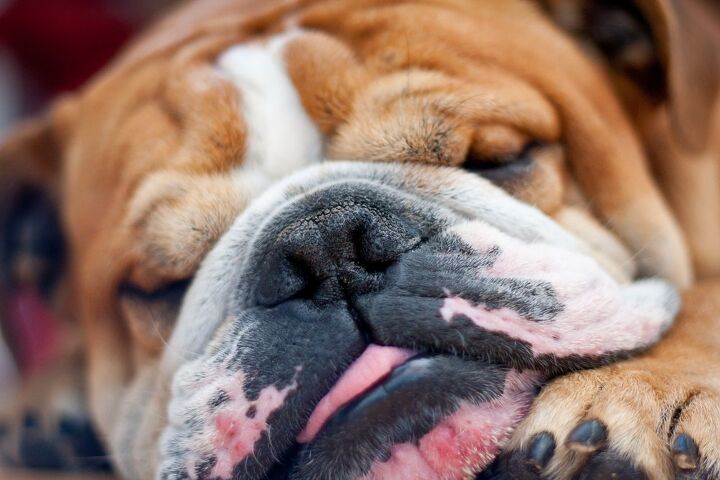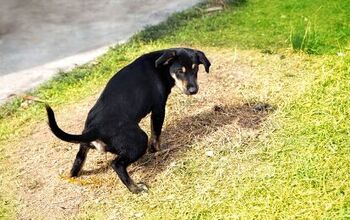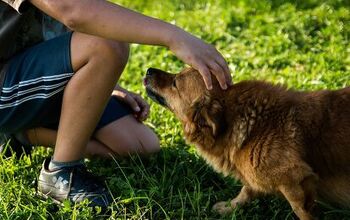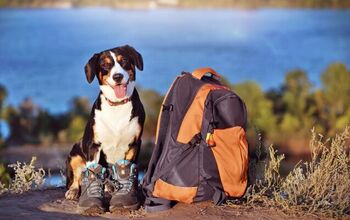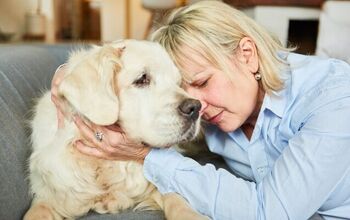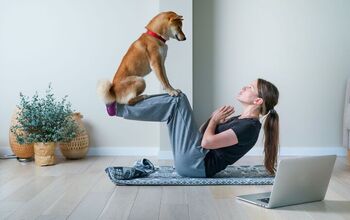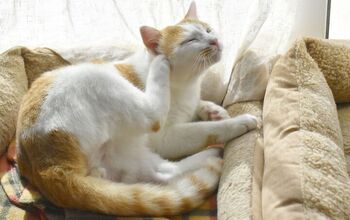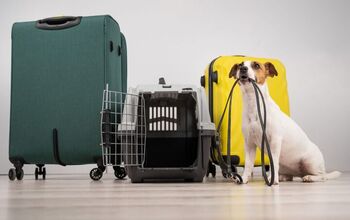Dog Snorting: Why It Happens and What to Do About It

Everyone sneezes, even your dog. When a dog sneezes it often catches him by surprise, so his reaction to it is just as amusing as the sneeze itself. In addition to sneezing, some dogs exhibit another strange behavior – snorting. Sometimes the two look very similar, so it can be difficult to tell what is really going on. Keep reading to learn more about dog snorting including why it happens and what to do about it.
Dogs sneeze for all kinds of reasons, just like humans. In many cases, it is related to the upper respiratory tract – either something is causing irritation or there is some kind of infection. In dogs, these infections could include anything from distemper to kennel cough. Another potential cause for sneezing in dogs is an upper airway obstruction – this is most common in short-faced breeds that have brachycephalic syndrome. Other potential causes for sneezing into environmental allergies or inhaled irritants, either of which may include dust, pollen, and perfumes.
Related: What Pet Parents Need To Know About Reverse Sneezing In Dogs
Though some of the causes for snorting in dogs overlap with the causes of sneezing, there are some key differences. For example, if your dog snorts frequently then it could be the result of obesity. Obesity increases your dog’s risk for upper airway obstruction which can lead to frequent snorting as your dog tries to clear his respiratory tract. In some cases, snorting is caused by something called “reverse sneezing” in which the dog experiences repeated bouts of spastic inhalation. After the bout passes, your dog may snort to clear his throat.
Reverse sneezing, also known as paroxysmal respiration, can be frightening to experience if you are seeing it for the first time. This is largely due to the loud noise that accompanies it. The good news is that in most cases, startling experience is nothing serious or overly concerning. While veterinary professionals and researchers haven’t been able to pinpoint the exact cause of the reverse sneeze, there are a long list of potential causes including allergies, smoke, or foreign bodies in the nose, sinuses, or back of throat. Most cases of reverse sneezing will resolve themselves with no need for medical care. However, if you notice that your dog continues reverse sneezing with little to no relief, or if it continues returning, you should contact your veterinarian for a more detailed examination.
Do you notice that your dog tends to sneeze specifically while playing with other dogs? If so, the cause is nothing to be concerned about. In fact, behaviorists say that dogs sneeze as a form of communication. The act of sneezing in the middle of play signals that any roughhousing is just fun natured, not a threat. If they feel like there may be a misunderstanding or miscommunication of this point, sneezing is an effective way to diffuse the situation.
If your dog snorts very frequently it is not necessarily a cause for concern, but you may want to consult your vet anyway. If your dog is a flat-faced breed or is carrying extra weight, it is likely that he has an upper airway obstruction or some kind of anatomical abnormality that is contributing to the problem. Depending how severe the problem is, your veterinarian may recommend treatment or surgery.
Related: Why Is My Cat Sneezing?
To diagnose your dog’s problem, your vet may take a history of his symptoms so make sure you’ve been paying attention. Next, he’ll perform a physical exam and may take blood to run laboratory tests in order to rule out any underlying health problems. If those results are inconclusive, he may go so far as to order X-rays or other imaging tests. In extreme causes, he may need to do a visual examination of the nasal structures which could require anesthesia.
In addition to having your dog checked out by your veterinarian, there are a few simple things you can do to prevent snorting. For example, you could try using a harness instead of a collar when walking your dog to take the pressure off his neck. Brachycephalic breeds should also be protected from high temperatures and keeping your dog at a healthy body weight will help as well.
If you notice your dog sneezing, you may be wondering when you can laugh it off as being an adorable episode and when you should be concerned that it’s something more. In many cases, dog snorting is harmless and doesn’t signify a serious problem. However, if your dog is sneezing more frequently, if it is paired with signs of respiratory distress, or if there are any other signs that there could be something more serious happening, then you should take the situation seriously and contact your veterinarian for the next recommended steps.
The first thing to take notice of is how frequently your dog is sneezing. A one-off sneeze could easily be a minor irritation in their nasal passages that has now resolved itself. This is especially common if some dust or pollen has found it’s way into your dog’s nose leading to a sneeze. However, if you notice that your dog continues sneezing repeatedly over a period of time, it’s a sign that there may be a bigger concern that needs to be addressed. It could still be nothing important, but it’s better to err on the side of caution and contact your veterinarian to investigate the potential cause.
Another red flag to watch out for is the presence of blood. If your dog is sneezing blood, this is a sign that there is something that has either caused some form of damage in his nose or that something is stuck there irritating the sinus passages. This could be hair, a food item that became stuck while eating, or a plant such as the all-too-common foxtail burr.
If there is something lodged in your dog’s nose, you should contact your veterinarian as soon as possible to address the situation. Not only will this allow the professionals to carefully remove the item preventing any additional damage, but it also allows them to prevent it from becoming lodged even deeper in his nasal cavity. If your veterinarian does find any damage present in his sinus passages, they can also prescribe medications to prevent further complications, such as an infection.

Kate Barrington is the loving owner of two cats (Bagel and Munchkin) and a noisy herd of guinea pigs. Having grown up with golden retrievers, Kate has a great deal of experience with dogs but labels herself a lover of all pets. Having received a Bachelor's degree in English, Kate has combined her love for pets and her passion for writing to create her own freelance writing business, specializing in the pet niche.
More by Kate Barrington



